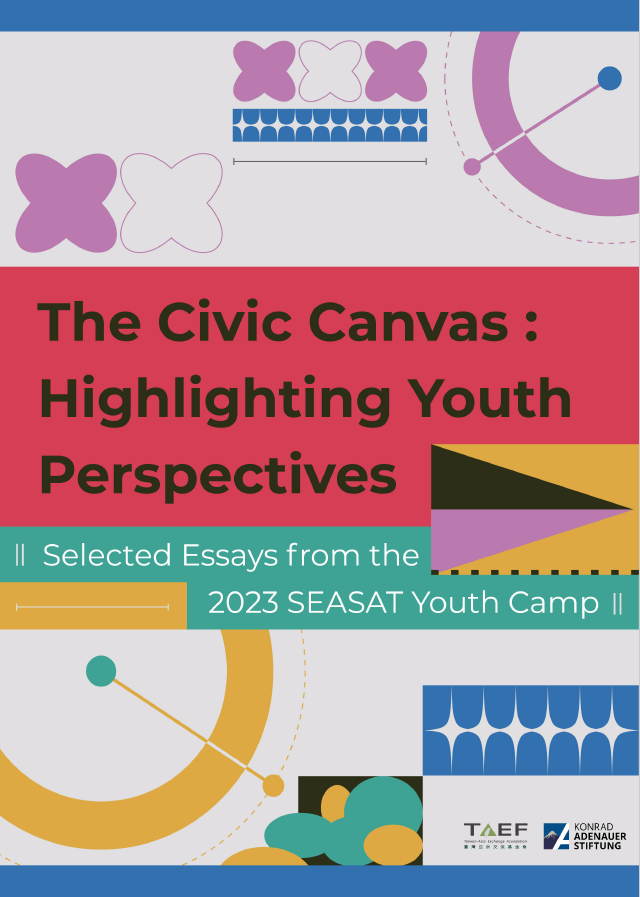
Taiwan-Asia Exchange Foundation (TAEF) and the Konrad Adenauer Stiftung’s Regional Economic Programme Asia (SOPAS) are delighted to present "The Civic Canvas: Highlighting Youth Perspectives", a series composed of half a dozen essays written by emerging young leaders who participated in this year’s Southeast Asia-South Asia-Taiwan (SEASAT) Youth Camp. In our journey to explore the New Southbound Policy and perspectives on democracy, these essays highlight the significance of collaboration, inclusion, and innovation in shaping the future of leadership and cross-border relationships in the globalized world.
Taiwan’s New Southbound Policy (NSP) and its role in strengthening regional ties are explored in essays by Kha (Khanh Ha) Le, Huynh Ngoc Thanh Tam, and Hree Dharma Santhi Putri Samudra. Le argues that the NSP’s unconventional diplomacy, a strategy that relies more on soft power and cultural exchange, can be supplemented by strengthening economic ties. Tam and Samudra on the other hand, explore new avenues and tease out possibilities where the NSP can play a significant role in rules-making and conflict resolution.
The next set of essays by Gerald John Guillermo, Ellya Rizki Handayani, and Ariella (Ari) Osmeña looks at the importance of democracy and the role it plays in shaping societies and nations. Guillermo examines the state of democracy and the youth’s contribution to sustaining meaningful participation. Handayani explores the limits of democratic participation by discussing how policymaking can be subjected to populist sentiments. Meanwhile, Osmeña emphasizes the importance of inclusion and representation in keeping democracy vibrant.
These essays provide an introduction to the perspectives of young people on how collaboration can bridge boundaries and foster international relations, which also reflect the core issues concerning the youth in Asia. They serve as specific examples of youth-led initiatives promoting collaboration in the context of the NSP and youth-led movements advocating for democratic values and inclusive governance. We hope these essays will give fresh insights into the NSP and democracy and promote the inclusion of youth voices and actions in national and regional development.